Kelly Levick
A Neural Network Detector for Spectrum Sensing under Uncertainties
Aug 06, 2019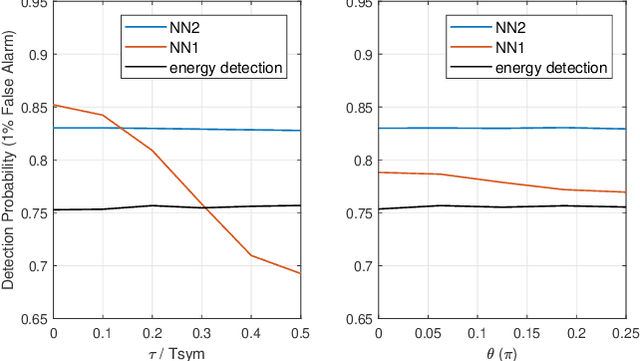
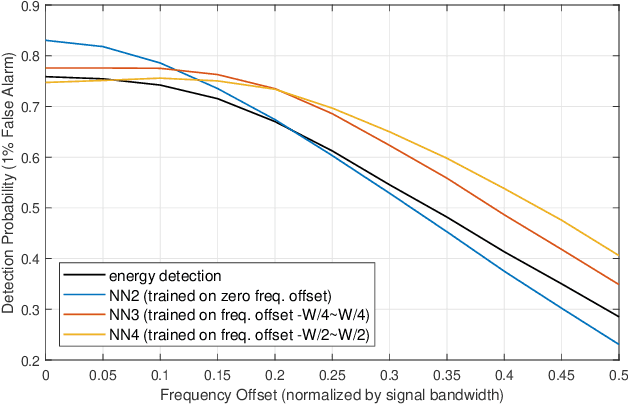
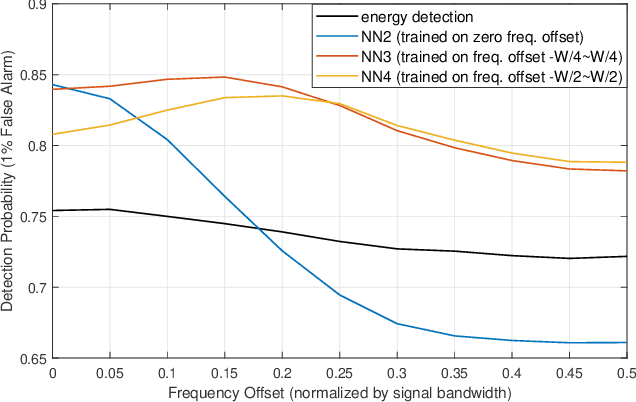
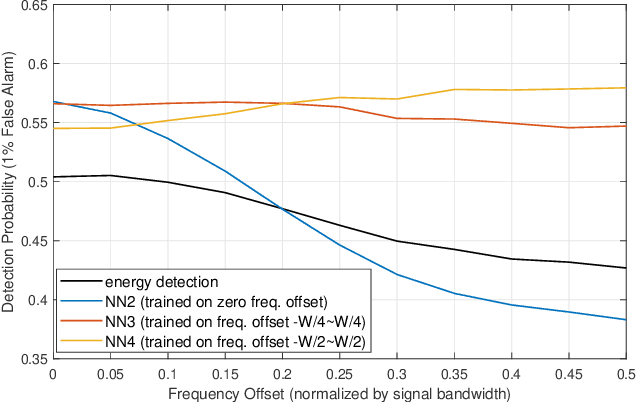
Abstract:Spectrum sensing is of critical importance in any cognitive radio system. When the primary user's signal has uncertain parameters, the likelihood ratio test, which is the theoretically optimal detector, generally has no closed-form expression. As a result, spectrum sensing under parameter uncertainty remains an open question, though many detectors exploiting specific features of a primary signal have been proposed and have achieved reasonably good performance. In this paper, a neural network is trained as a detector for modulated signals. The result shows by training on an appropriate dataset, the neural network gains robustness under uncertainties in system parameters including the carrier frequency offset, carrier phase offset, and symbol time offset. The result displays the neural network's potential in exploiting implicit and incomplete knowledge about the signal's structure.
Comparison of Neural Network Architectures for Spectrum Sensing
Jul 15, 2019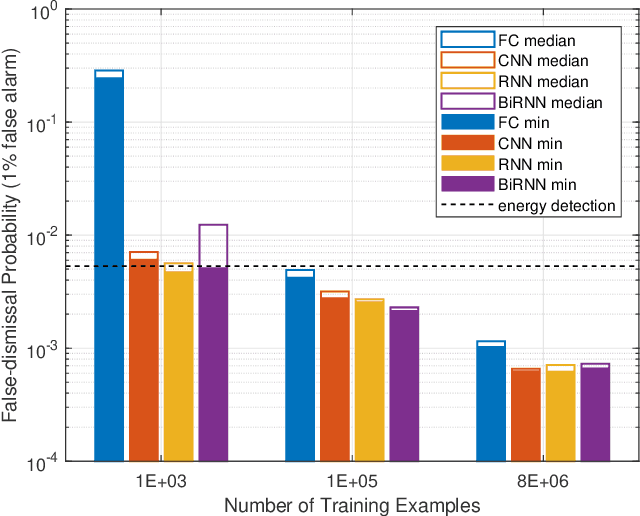
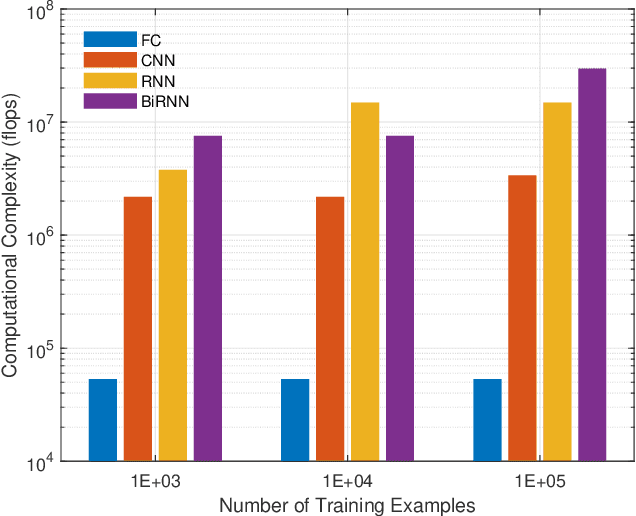
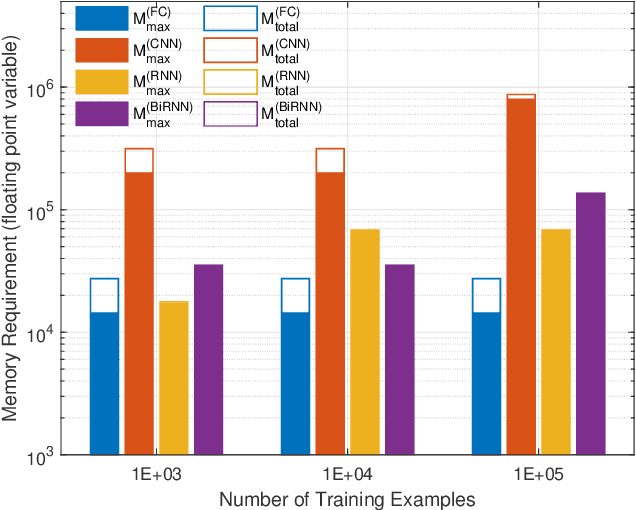
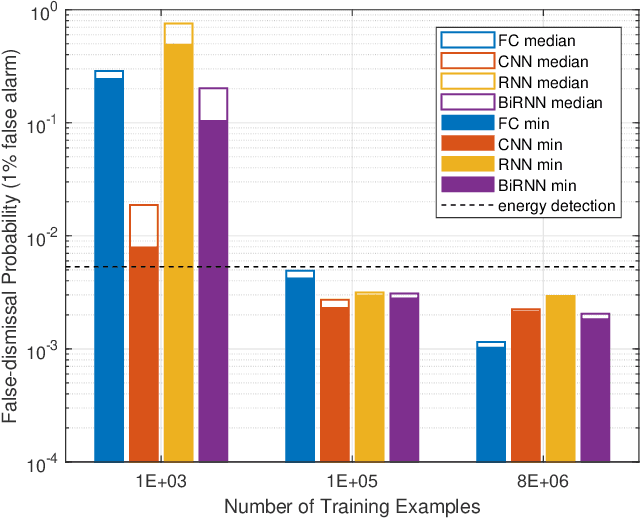
Abstract:Different neural network (NN) architectures have different advantages. Convolutional neural networks (CNNs) achieved enormous success in computer vision, while recurrent neural networks (RNNs) gained popularity in speech recognition. It is not known which type of NN architecture is the best fit for classification of communication signals. In this work, we compare the behavior of fully-connected NN (FC), CNN, RNN, and bi-directional RNN (BiRNN) in a spectrum sensing task. The four NN architectures are compared on their detection performance, requirement of training data, computational complexity, and memory requirement. Given abundant training data and computational and memory resources, CNN, RNN, and BiRNN are shown to achieve similar performance. The performance of FC is worse than that of the other three types, except in the case where computational complexity is stringently limited.
 Add to Chrome
Add to Chrome Add to Firefox
Add to Firefox Add to Edge
Add to Edge